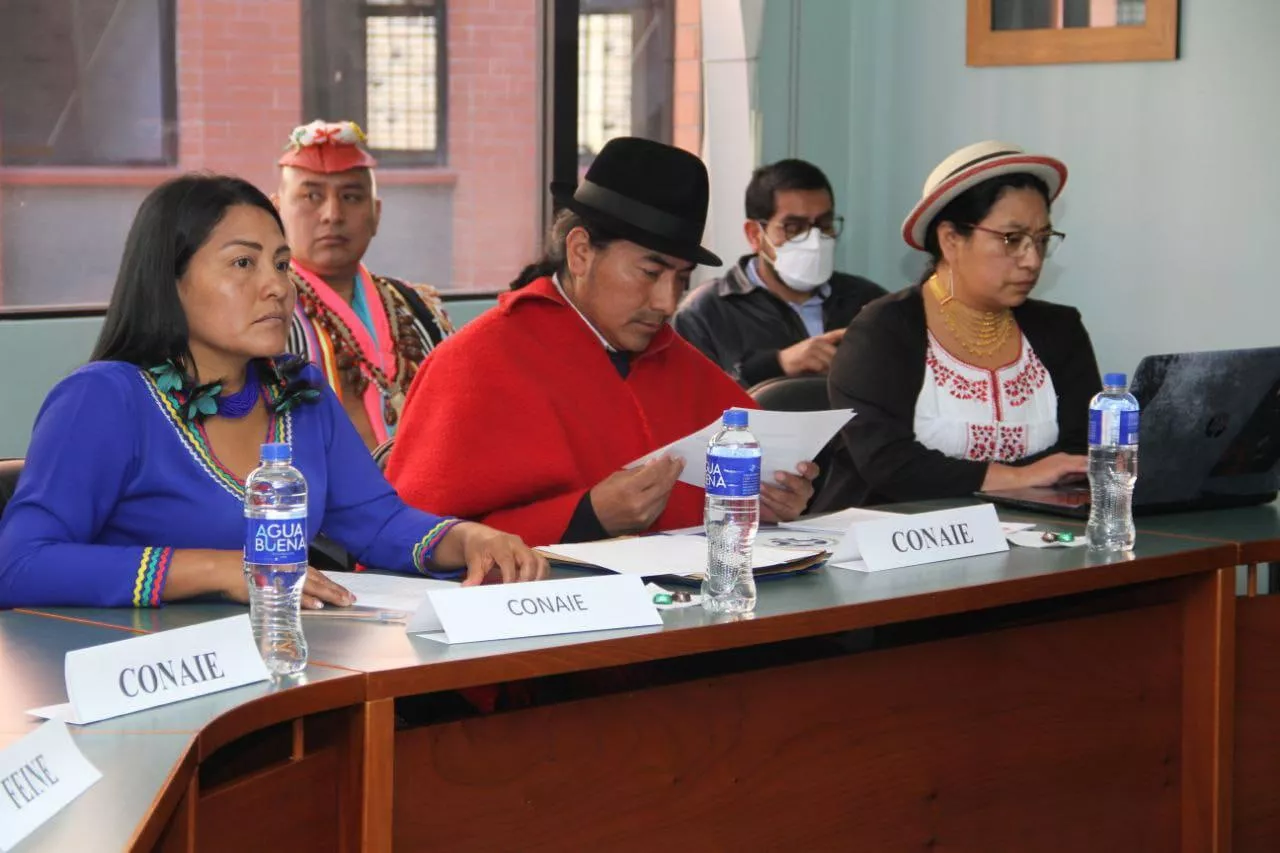The impeachment process against Ecuadorian President Guillermo Lasso laid bare the internal crisis in one of the main opposition forces: the indigenous party Pachakutik.
Cross accusations between the indigenous leader Leonidas Iza and other leaders even led to the reiteration of an internal election.
The political party Pachakutik – which concentrates the indigenous movement in Ecuador – is going through an internal crisis that forces it to repeat its own internal elections after a sector was accused of altering the electoral registry and promoting acts of violence to benefit a candidate in the April 29 election.

The National Electoral Tribunal (TEN) of the movement itself called for new elections in a maximum term of 10 days, to be held in the locality of Puyo, in the province of Pastaza -same locality as the previous election- after announcing that there were not enough guarantees in the process of April 29.
For the TEN there were “acts of interference, disrespect, violation of democratic principles in the facilities” where the voting took place, which affected “the majority of the polling stations”.
The decision was taken after admitting a challenge presented by the candidate to the second national sub-coordination for list B – which supports the candidate to the national coordination Cecilia Velasque – Bomnyth Palmira Paredes Llori.
The leader denounced that in the elections held on April 29 in Puyo, “there were authoritarian acts on the part of the president of the Confederation of Indigenous Nationalities of Ecuador (CONAIE), Leonidas Iza.”
Iza supported the leader Guillermo Churuchumbi, who finally won the contested elections.
CONAIE defended the legitimacy of the process and rejected the decision to hold the elections again.
Paredes Llori assured that Iza “requested the alteration of the electoral registry in six provinces, giving indications to the members of the voting boards to include other people who were not contemplated in the electoral roll”.
He also indicated that violent acts were perpetrated in the precincts where voting was taking place with the purpose of benefiting a candidate.
As a consequence, several people were injured and material damage was caused to real estate in the area.
The indigenous movement, for its part, backed Churuchumbi at the head of the party’s national coordination, and assured that “that decision must be respected, for being legal and legitimate”, through a communiqué.
In addition, the organization led by Iza accused the leaders Cecilia Velasque, Jessica Castillo, Rafael Lucero and Leonardo Meneses of not accepting the defeat, “believing themselves to be the owners of the party for more than a decade” and promoting division within the party.
The crisis within the party occurs in the midst of the impeachment process against President Lasso.
The effort managed to advance in the National Assembly by obtaining, on May 9, the 88 votes necessary to enable the trial, thanks to the fact that the party’s parliamentarians agreed to vote.
The party’s support generated great speculation in the country’s political sphere, and in Pachakutik itself, which demanded a firm position from its members in the context of accusations of vote-buying attempts by the government.
With information from Sputnik

